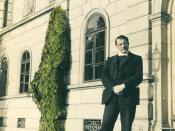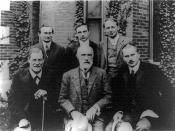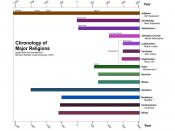IntroductionThose who have come into the psychology of religion by way of religious studies typically conceive of the field as one of the sciences of religion rather than a specialization within psychology. They correspondingly decline to follow the empirical approach and opt instead for one or another of the interpretive perspectives. Just as the empirical outlook can be traced back to the Clark school, so the interpretive approach has roots going back to James and Freud in the early twentieth century and, before them, to a tradition of reflection extending from Feuerbach and Hume, in the nineteenth and eighteenth centuries, back to the early Greek rationalists. Whereas the empirical approach is inherently a psychology of religious persons and is therefore focused on individual differences in piety, the interpretive perspective is foremost a psychology of religious contents and thus seeks out the meaning of the images, objects, stories, and rituals that together compose the religious traditions.
Even when this content is idiosyncratically appropriated or transformed in individual lives, the accent remains on its meaning, not the range of its variations.
Much of the interpretive literature even today centers on reviewing, elaborating, and critiquing the views of the classic interpreters, especially Freud and Jung. James is also periodically revisited, as a wellspring of insights into individual religious experience and its consequences. Yet given his disdain for religious symbols and rituals, James offers his readers little for interpreting specific contents. Thus it has been the depth psychologists, mainly, who have animated the interpretive literature. Although FreudÃÂs views of religion are still affirmed and applied by occasional researchers, his interpretations are more often criticized, frequently becoming themselves the subject of psychological analysis. His narrowly patriarchal configuration of religion and his thoroughgoing rejection of it have been explored in terms of his personal history, his...



Nice
Nice Comparison :)
0 out of 0 people found this comment useful.